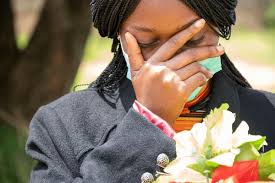The Chipata High Court has acquitted seven family members from Petauke who were accused of m_urdering their relative, Golid Banda, over suspicions of w!tchcraft. High Court Judge Laston Mwanabo delivered the ruling, citing a lack of corroborative evidence from witnesses to support the allegations against the accused.
The case, which unfolded in Nyimba, stemmed from a tragic incident in August when Banda was allegedly stoned to death by his relatives. The prosecution claimed the m_rder was motivated by suspicions of w!tchcraft within the family. However, after a lengthy trial, the court found the evidence presented insufficient to link the accused to the crime.
During the trial, Vincent Banda, 30, one of the deceased’s sons, testified about the events leading up to his father’s de@th. He recounted that the family had gathered in the village to attend the burial of his aunt. According to Vincent, tensions escalated shortly after the burial.
“As we were heading back to the village from the graveyard, my grandfather advised me to stay close to my father because some people wanted to k!ll him,” Vincent told the court. He claimed that this warning was a prelude to the attack on his father.
Despite Vincent’s testimony, the court ruled that the evidence was not strong enough to convict the accused. Judge Mwanabo noted that key elements of the case, including the alleged conspiracy and the events leading to Banda’s death, were not sufficiently substantiated by the witnesses.
The acquittal has sparked discussions about the challenges of addressing witchcraft-related accusations in Zambia, particularly in rural areas where such beliefs are deeply rooted. Cases involving w!tchcraft often present difficulties in securing concrete evidence, as they rely heavily on hearsay and personal beliefs rather than verifiable facts.
The ruling also highlights the complexities of the justice system in handling cases influenced by cultural and traditional practices. While the court’s decision to acquit the accused was based on the principle of reasonable doubt, it leaves unresolved questions about the circumstances surrounding Banda’s death.
As the seven family members walk free, the case underscores the ongoing tension between traditional beliefs and modern legal standards, raising concerns about how such cases can be effectively addressed to ensure justice while respecting cultural sensitivities.










